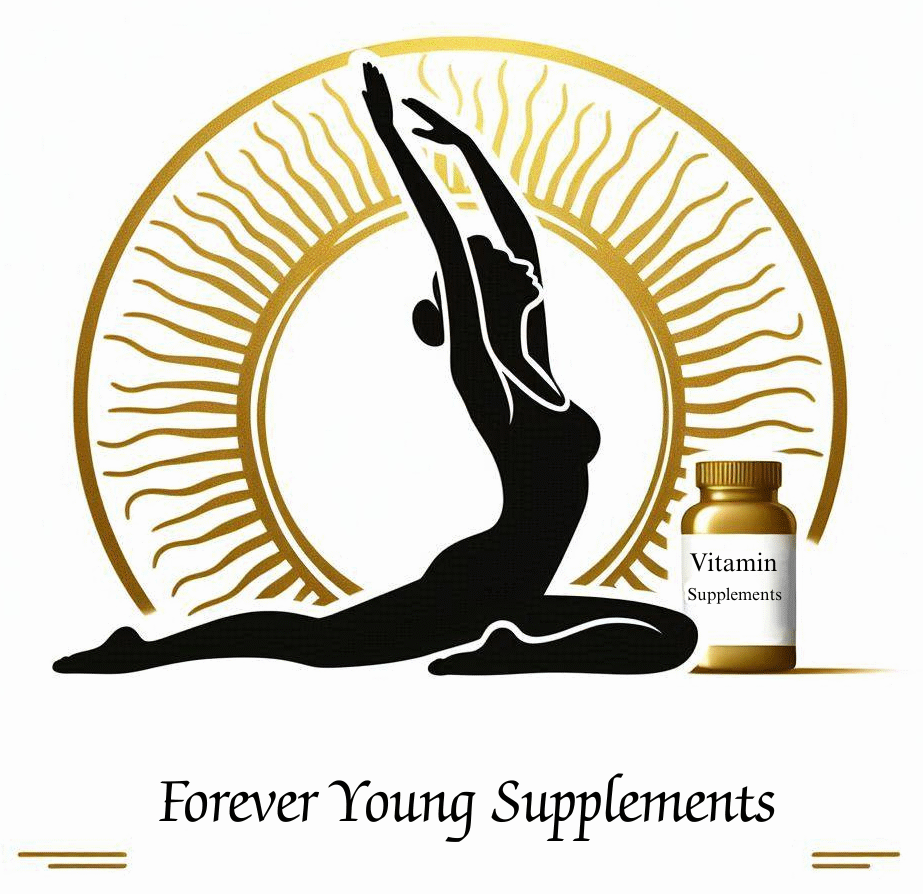Supplements For Seniors
In the world of health and wellness, dietary supplements have become a popular choice among seniors seeking to enhance their quality of life. As we age, our bodies may not absorb nutrients as efficiently, potentially leading to deficiencies that can affect our overall well-being. This is where supplements come into play, offering support to bridge those nutritional gaps that sometimes creep in with age.
Understanding the role of supplements before diving into their use is crucial. By definition a supplement is a product intended to add to or complete one’s diet, typically by providing nutrients or other substances that may be lacking or insufficient. These can include vitamins, minerals, herbs, amino acids, and other compounds. They are not a replacement for a well balanced diet, but rather, a supportive tool to help meet your nutritional needs. It is essential to approach supplement use thoughtfully, keeping in mind the unique needs of each individual. What works for one person might not be suitable for another, especially if underlying health conditions are at play.
I want to emphasize the importance of consulting with a healthcare professional before introducing any new supplement into your routine. A doctor or a registered dietitian can offer tailored advice, considering your overall health status and any medications you might be taking. This step is vital to ensure that the supplements you’re considering will be beneficial and not interfere with your current health plan.

Lastly, it is important to stay informed about the supplements you are thinking of using. The world of dietary supplements is vast and sometimes perplexing, with many options and claims. Taking the time to educate yourself can make a significant difference in your health journey.
Understanding Dietary Supplements
Dietary supplements serve as an addition to your regular diet, designed to provide nutrients that you might not be getting enough of from food alone. These supplements come in several forms, including pills, powders, liquids, and gummies, each offering their own unique way to integrate into your daily routine.
The spectrum of dietary supplements is broad, including essential vitamins and minerals like Vitamin D, calcium, or iron, which many people find beneficial in supporting their overall health needs. Besides these, dietary supplements can also consist of herbs like turmeric or ashwagandha, amino acids like glutamine, and enzymes that assist in digestion.
When considering dietary supplements, it is useful to recognize the categories they fall into. Vitamins and minerals are often the most recognized, but equally important are herbal supplements, which have long been used in traditional practices and are now increasingly backed by scientific research for their potential health benefits.
It is worth mentioning that not all nutrients have equal absorption rates. Some are water-soluble, like Vitamin C, meaning they dissolve in water and get excreted through urine if in excess. Others are fat-soluble, like Vitamin E, which are stored in the body’s fatty tissues and liver. Understanding these differences can help you make informed choices about the supplements you decide to use, ensuring that they align with your dietary needs and health goals.
The Purposes Behind Supplement Use
Dietary supplements have carved a niche for themselves among seniors, fitting nicely into various health and wellness goals. One of the primary reasons people turn to supplements is to fill nutritional gaps. As dietary habits may change with age or certain nutrients become harder to absorb, supplements can offer a practical solution to ensure your body gets what it needs.
Beyond the necessities, some seniors use supplements to help boost their energy and athletic performance. Ingredients like creatine and specific amino acids can support muscle health, enhance endurance, and aid recovery after physical activities, making supplements appealing to those wanting to maintain an active lifestyle.
The immune system is another area where supplements may play a supportive role. Vitamins like C and D, along with herbal remedies like echinacea, are popular choices among those looking to reinforce their body’s defenses, especially during cold and flu season.
Mental clarity and stress management are additional reasons people explore supplements. With age, balancing mental health becomes increasingly important. Supplements that promote mental wellness, such as omega-3 fatty acids or adaptogens like rhodiola, can assist in managing stress and sustaining focus.
Supplements also extend their benefits to weight management and skin health. Ingredients like fiber supplements can support healthy digestion, while antioxidants present in some products aid skin health, addressing concerns like aging spots or maintaining skin elasticity.
When considering supplements for any of these purposes, always weigh the potential advantages against your unique health needs. Consulting with healthcare professionals will ensure that what you choose aligns with your goals and complements your lifestyle.
Diverse Supplement Types: A Closer Look
When it comes to selecting the right supplement, the variety available can feel overwhelming. Each type serves different needs and functions, and understanding these can guide you in making informed choices.
Vitamins and minerals form the backbone of many supplement regimens. These nutrients are divided into essential, those our body needs but cannot produce, and non-essential, which still play significant roles but can sometimes be synthesized internally. Differentiating between water soluble vitamins, like the B-complex group, which need regular replenishment, and fat-soluble vitamins, like A, D, E, and K, which are stored in the body, helps tailor your supplement plan. Keep an eye out for common deficiencies like Vitamin D or B12, particularly if dietary sources are limited or absorption is an issue.
Herbal and botanical supplements have been part of traditional healthcare practices worldwide, and modern science continues to explore their benefits. Examples include turmeric for its anti-inflammatory properties or ashwagandha for stress relief. Whether used for their historical significance or backed by contemporary research, these supplements often offer a holistic approach to health.

For those needing muscle support or recovery, protein and amino acid supplements are the go to products. Options range from whey and casein to plant-based proteins, suitable for different dietary preferences. Amino acids like BCAAs (Branched Chain Amino acids) or creatine are popular among those looking to enhance strength or endurance.
If weight management is a priority, supplements like fat burners or appetite suppressants, can be considered but should be approached with caution. It is crucial to prioritize safety and realistic expectations over quick fixes, ensuring any product you consider is reputable and understood through thorough scientific research.
Cognitive and mood enhancers, sometimes referred to as nootropics, are gaining recognition. Ingredients like omega-3s support brain health, while L-theanine combined with caffeine can improve focus without the jittery side effects of caffeine alone. The key is finding the balance that supports mental vitality without over reliance on supplementation.
Finally, for sports enthusiasts or those looking to maintain an active lifestyle, sports and performance enhancers such as pre-workout drinks, intra-workout formulas, and recovery blends can provide the boost needed to optimize workouts and speed up recovery.
Choosing the Ideal Supplement for You
Navigating the world of supplements requires a thoughtful approach, especially with the myriad of options available. One of the first steps in selecting the right supplement is carefully reading labels and ingredient lists. Understanding what goes into your supplement is key to ensuring that you are making a safe and beneficial choice.
Keep an eye out for third-party testing and certifications on the packaging. These markers are crucial because they verify the supplement’s quality and purity, providing peace of mind that what you are taking meets industry standards.
Another important aspect is understanding the dosage and bioavailability of the supplement. Bioavailability refers to how well your body can absorb and utilize a nutrient, which directly affects its effectiveness. To maximize benefits, align the form and dosage of the supplement with your body’s specific needs.
When you come across products with proprietary blends, approach them with caution. This term means the manufacturer has used a mix of ingredients but hasn’t disclosed the amounts. Without knowing the exact component ratios, assessing the product’s safety and efficacy becomes challenging.

Always consider consulting a healthcare professional to tailor your supplement choices to your individual health profile. Their guidance can help you avoid potential risks and interactions with other medications or conditions you might have. Remember, supplements should be part of a balanced approach to health that includes a nutritious diet and regular exercise.
Recognizing and Managing Supplement Risks
While supplements can provide numerous health benefits, it’s important to stay aware of potential risks and side effects that come with their use. Overdosing on certain vitamins or minerals can lead to serious health issues. For example, an excess of fat-soluble vitamins can accumulate in the body, potentially leading to toxicity.
Interactions with medications are another concern. Some supplements can either enhance or negate the effects of prescribed drugs, making it crucial to consult with your healthcare provider about any supplements you are considering. This step ensures that you are not inadvertently causing harm by mixing substances that shouldn’t be combined.
The risk of contaminants or mislabeling in supplements is real. Not all products are created equal, and some might contain harmful additives or incorrect ingredients. Choosing supplements that have been rigorously tested and certified by third parties can mitigate these risks, providing a level of assurance regarding their safety and accuracy.
The supplement industry isn’t as strictly regulated as pharmaceuticals, which can lead to gaps in oversight. Products might not always meet their label claims, and loopholes could allow for misleading marketing. That’s why educating yourself and approaching supplements with an informed mindset is vital.
Ultimately, making informed decisions involves weighing potential benefits against risks and ensuring that supplements are used as a complement to a balanced lifestyle rather than a substitute for good nutrition or medical care.

